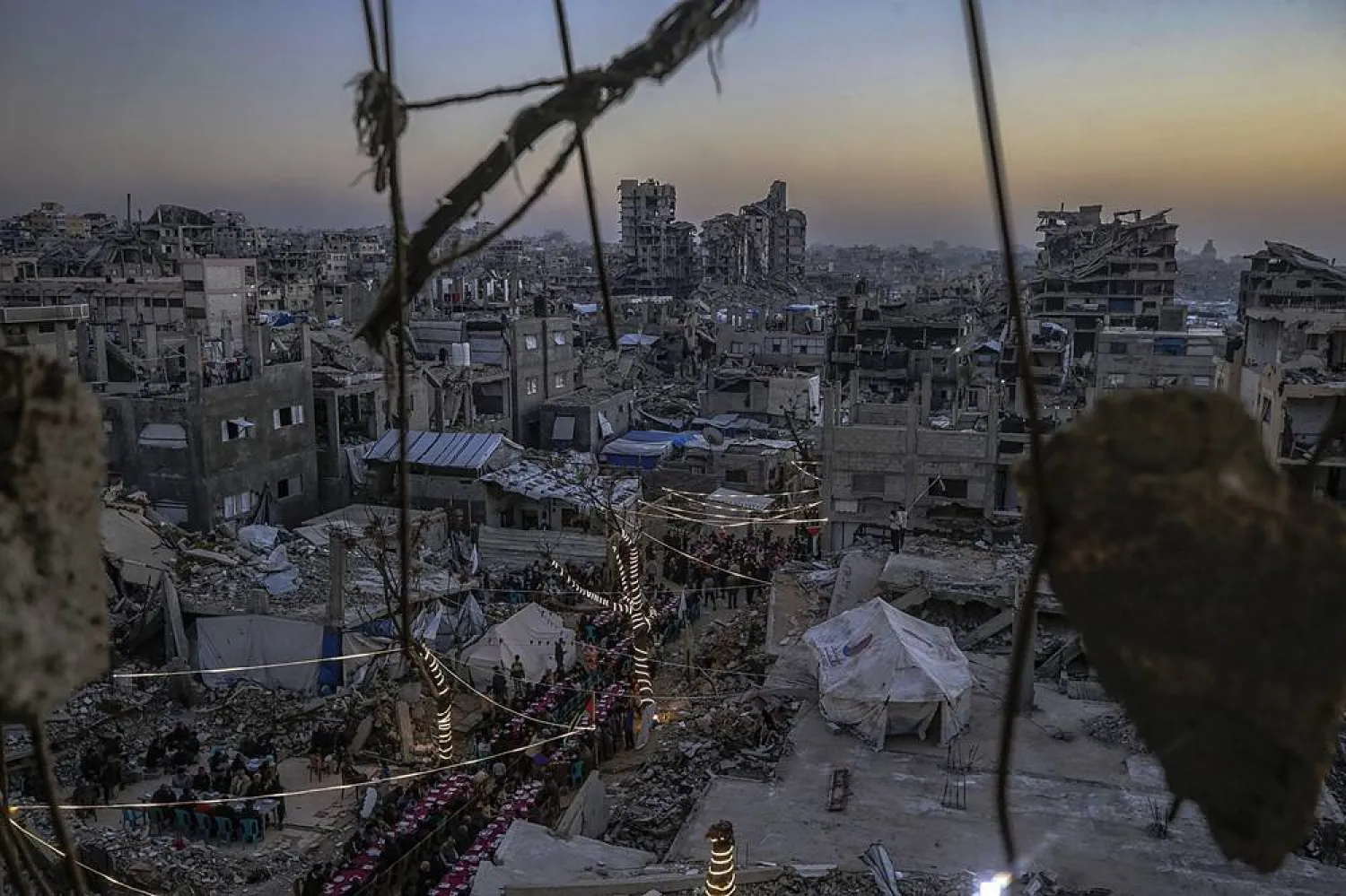Israeli troops stormed one of the last hospitals operating in northern Gaza on Friday, igniting fires and forcing many staff and patients outside to strip in winter weather, the territory’s health ministry said.
Kamal Adwan Hospital has been hit multiple times over the past three months by Israeli troops waging an offensive against Hamas fighters in surrounding neighborhoods, according to staff. The ministry said a strike on the hospital a day earlier killed five medical staff.
Israel's military said it was conducting operations against Hamas infrastructure and fighters in the area of the hospital, without details. It repeated claims that fighters operate inside Kamal Adwan but provided no evidence. Hospital officials have denied that.
The Health Ministry said troops forced medical personnel and patients to assemble in the yard and remove their clothes. Some were led to an unknown location, while some patients were sent to the nearby Indonesian Hospital, which was knocked out of operation after an Israel raid this week.
Israeli troops during raids frequently carry out mass detentions, stripping men to their underwear for questioning in what the military says is a security measure as they search for Hamas fighters. The AP doesn’t have access to Kamal Adwan, but armed plainclothes members of the Hamas-led police forces — tasked with keeping security and officially separate from the group’s armed wing — have been seen in other hospitals.
The Health Ministry said Israeli troops also set fires in several parts of Kamal Adwan, including the lab and surgery department. It said 25 patients and 60 health workers remained in the hospital out of 75 patients and 180 staff who had been there. The account could not be independently confirmed, and attempts to reach hospital staff were unsuccessful.
“Fire is ablaze everywhere in the hospital,” an unidentified member of the staff said in an audio message posted on the social media accounts of hospital director Hossam Abu Safiya. The staffer said some evacuated patients had been unhooked from oxygen. “There are currently patients who could die at any moment,” she said.
Since October, Israel’s offensive has virtually sealed off the northern Gaza areas of Jabaliya, Beit Hanoun and Beit Lahiya and leveled large parts of them. Tens of thousands of Palestinians were forced out but thousands are believed to remain in the area, where Kamal Adwan and two other hospitals are located. Troops raided Kamal Adwan in October, and on Tuesday troops stormed and evacuated the Indonesian Hospital.
The area has been cut off from food and other aid for months, raising fears of famine. The UN says Israeli troops allowed just four humanitarian deliveries to the area from Dec. 1 to Dec. 23.
The Israeli rights group Physicians for Human Rights-Israel this week petitioned Israel’s High Court of Justice seeking a halt to military attacks on Kamal Adwan. It warned that forcibly evacuating the hospital would “abandon thousands of residents in northern Gaza.” Before the latest deaths Thursday, the group documented five other staffers killed by Israeli fire since October.
Israel launched its campaign in Gaza vowing to destroy Hamas after the group’s Oct. 7, 2023, attack on southern Israel in which fighters killed around 1,200 people and abducted some 250 others. Around 100 Israelis remain captive in Gaza, around a third believed to be dead.
Israel’s nearly 15-month-old campaign of bombardment and offensives has devastated the territory’s health sector. A year ago, it carried out raids on hospitals in northern Gaza, including Kamal Adwan, Indonesian and al-Awda Hospital, saying they served as bases for Hamas, though it presented little evidence.
Israel’s campaign has killed more than 45,400 Palestinians, more than half of them women and children, and wounded more than 108,000 others, according to the Health Ministry. Its count does not distinguish between civilians and combatants.
More than 90% of Gaza’s 2.3 million Palestinians have been driven from their homes, most of them now sheltering in sprawling, squalid tent camps in south and central Gaza.
Children and adults, many barefoot, huddled Friday on the cold sand in tents whose plastic and cloth sheets whipped in the wind. Overnight temperatures can dip into the 40s Fahrenheit (below 10 Celsius), and sea spray from the Mediterranean can dampen the tents just steps away.









